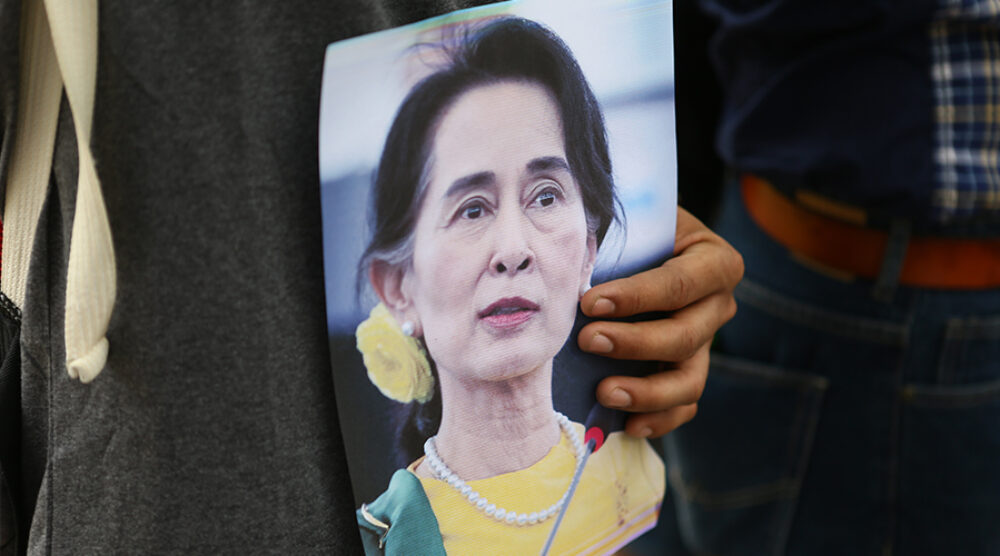It has been suggested recently that Myanmar’s imprisoned State Counsellor, Aung San Suu Kyi, has been left behind by history and is no longer relevant to the outcome of the civil war that has been raging around the country since the 2021 military coup. Given her pivotal role in Myanmar’s politics over the past 35 years or so, this idea warrants closer inspection.
The claim seems to have been prompted in part by the visit to Myanmar in April of the outgoing Thai Foreign Minister, Don Pramudwinai, who was granted an interview with Aung San Suu Kyi. He later said that she was in favour of a “dialogue without preconditions” aimed at achieving a negotiated solution to Myanmar’s crisis. This option has long been rejected by both the junta and the shadow National Unity Government (NUG).
Don’s visit has been criticised by the NUG and other opposition groups as a stunt designed to strengthen Bangkok’s ties to Myanmar’s military regime and to justify the outgoing Thai government’s much criticised attempt at two-track diplomacy, outside formal meetings of the Association of Southeast Asian Nations. It has also been seen as a way of putting pressure on Indonesia, as ASEAN’s current chair, to modify its tough stance against the junta, which has brushed aside ASEAN’s Five-Point Consensus.
Please click here to read the full “Has history left AungSan Suu Kyi behind?” article published at The Interpreter, written by Griffith Asia Institute Adjunct Professor Andrew Selth.








